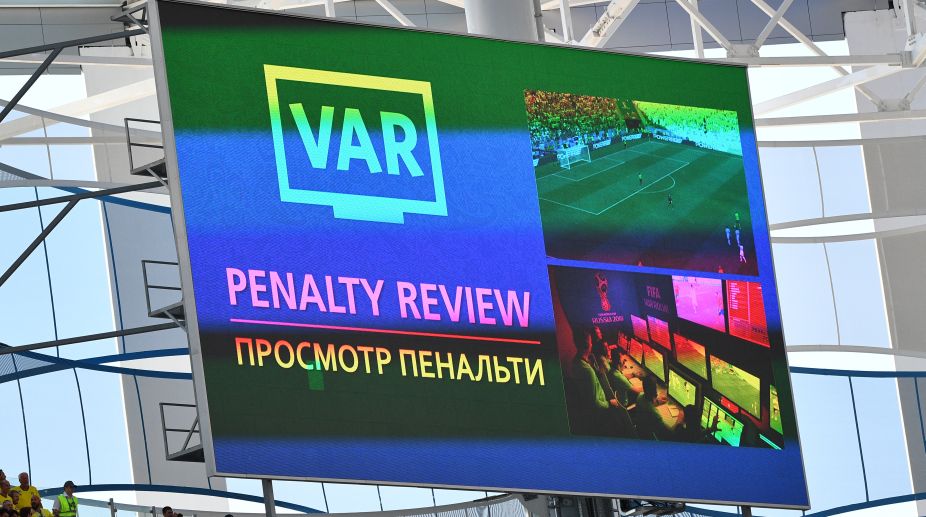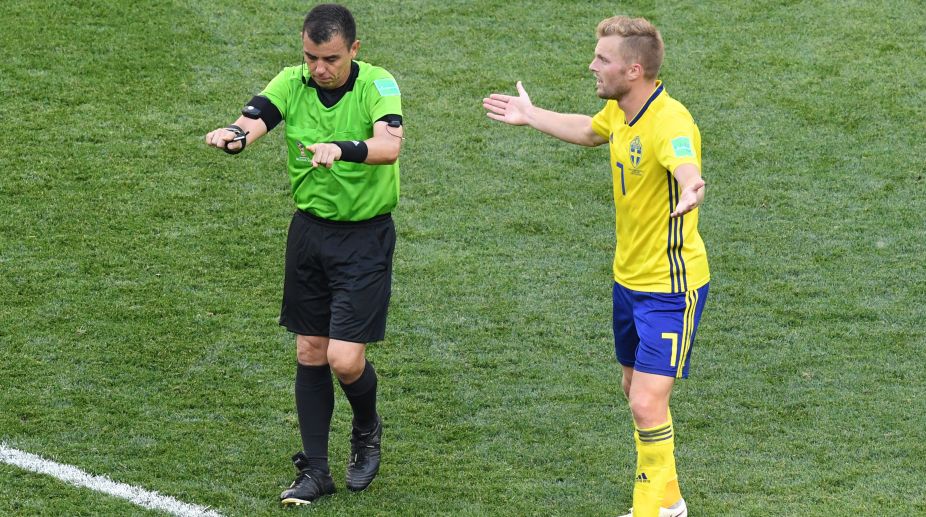South Korea’s court to hold final hearing of Yoon’s impeachment trial on Feb 25
South Korea's constitutional court will hold the 11th and final hearing of President Yoon Suk-yeol's impeachment trial on February 25.
VAR was meant to end debate regarding referees in football, but so far it has only stirred up more doubts.

The screen signals a VAR review during the Russia 2018 World Cup (Photo: AFP)
This is the first time Visual Assistant Referee (VAR) is being used in a FIFA World Cup, and it has already stirred up a lot of controversy. VAR was used for the first time during the 2017 Confederations cup, as a testing ground as FIFA wanted to bring the technology to the World Cup.
While sports like Cricket, Rugby and Tennis started using technology to help the referees a long time back, football relatively stayed away from letting technology interfere with the beautiful game.
Advertisement
VAR was meant to end debate regarding referees in football, but so far it has only stirred up more doubts. The problem with VAR is that it relies on referees subjective decision rather than depending on facts.
Advertisement
ALSO READ: 2018 FIFA World Cup | Will Mohamed Salah play against Russia?
Goal line technology (GLT), introduced in 2012, helped establish a fact whether the ball crossed the line or not using video evidence. On the other hand, VAR allows for referees own interpretation to creep in and the decision ultimately remains subjective.
So far, VAR has been used in almost every match and three penalties (two scored, one missed) have been awarded using VAR. French star Antoine Griezmann became the first ever player to score a penalty given by VAR.
In the Peru vs Denmark match, Peru’s Christian Cueva was also awarded a VAR penalty which many pundits believed was a wrong decision. This is where referee’s subjective interpretation comes in and affects the game in a negative way. If we are allowing technology to interrupt the game, the resulting decision has to be 100 per cent spot on as with GLT.
MUST WATCH: 2018 FIFA World Cup | Watch: Highlights from Sweden’s 1-0 win over South Korea
Another drawback with this technology is, the assistant referees cannot tell the referee to reverse a decision whenever they see a wrong one. The referee has to first ask for VAR’s help, then only can they assist the referee with his decision.
As we saw in Sweden vs South Korea, the players also tend to pressurise the referee in going up to the VAR. Initially, the penalty was not given and the South Korean players were on a counter-attack but the Swedish players kept running after the referee who gave in to their demand and wen to the VAR and a penalty was ultimately awarded. South Korean players looked visibly disappointed as another team was left undone by the VAR.

For VAR to become a effective, the decision has to be based on facts otherwise the whole purpose of using technology is lost. If these additions ae not made soon enough, VAR may turn into an evil nightmare with every single decision being reviewed. The normal time may be reduced to 60 minutes of play with 40 minutes added as extra time.
Advertisement